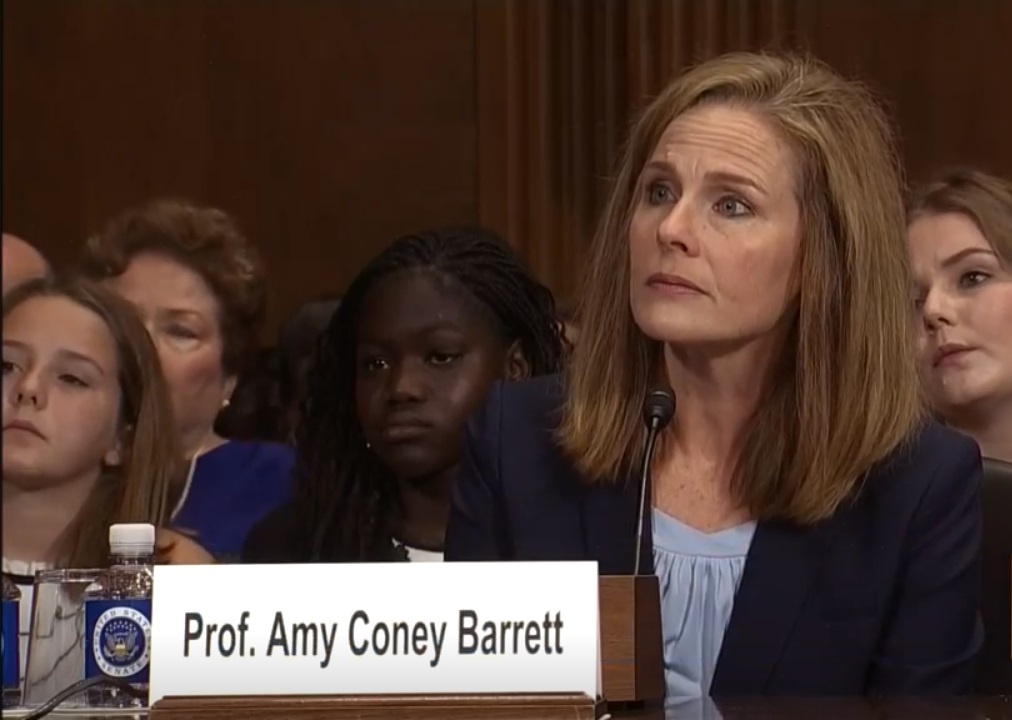
Supreme Court Justice Amy Coney Barrett authoring her first majority opinion involving records disclosure. The 7-2 decision announced Thursday March 4th, 2021 is a case about the federal Freedom of Information Act, which Barrett explains makes “records available to the public upon request, unless those records fall within one of nine exemptions.” Barrett wrote for the court that certain draft documents do not have to be disclosed under FOIA.
The Sierra Club sued the Trump administration in 2018, arguing the Freedom of Information Act required agencies to disclose the studies it conducted regarding the biological impact of an Environmental Protection Agency rule detailing how power plants and other industrial entities can draw water to cool machinery.
UNITED STATES FISH AND WILDLIFE SERVICE
ET AL. v. SIERRA CLUB, INC.
The Supreme Court ruled 7-2 in favor of the U.S. Fish and Wildlife Services and National Marine Fisheries Service with their dispute with the Sierra Club, which had sought records related to the services’ consultations with the Environmental Protection Agency (EPA) under the Freedom of Information Act (FOIA). Justices Stephen Breyer and Sonia Sotomayor dissented.
Respondent Sierra Club, an environmental organization, submitted requests under the Freedom of Information Act (FOIA) for records related to the Services’ consultations with the EPA. As relevant here, the Services invoked the deliberative process privilege to prevent disclosure of the draft biological opinions analyzing the EPA’s 2013 proposed rule. The Sierra Club sued to obtain these withheld documents, and the Ninth Circuit held that the draft biological opinions were not privileged because even though labeled as drafts, the draft opinions represented the Services’ final opinion regarding the EPA’s 2013 proposed rule.
SOUTH BAY UNITED PENTECOSTAL CHURCH,
ET AL., v. GAVIN NEWSOM, GOVERNOR OF
CALIFORNIA, ET AL.
ON APPLICATION FOR INJUNCTIVE RELIEF
[February 5, 2021]
JUSTICE BARRETT, with whom JUSTICE KAVANAUGH joins, concurring in the partial grant of application for injunctive relief. I agree with JUSTICE GORSUCH’s statement, save its contention that the Court should enjoin California’s prohibition on singing and chanting during indoor services. The
applicants bore the burden of establishing their entitlement to relief from the singing ban. In my view, they did not carry that burden–at least not on this record. As the case comes to us, it remains unclear whether the singing ban applies across the board (and thus constitutes a neutral and generally applicable law) or else favors certain sectors (and thus triggers more searching review). Of course, if a chorister can sing in a Hollywood studio but not in her church, California’s regulations cannot be viewed as neutral. But the record is uncertain, and the decisions below unfortunately shed little light on the issue. As the order notes, however, the applicants remain free to show that the singing ban is not generally applicable and to advance their claim accordingly.
Amy Coney Barrett was a former federal appeals court judge and law school professor nominated to the court by President Donald Trump replacing the late Associate Justice Ruth Bader Ginsburg.
